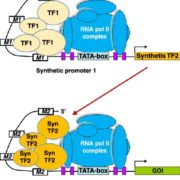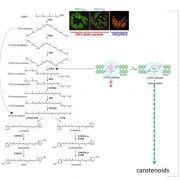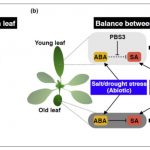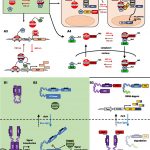Review: Applications of protein engineering and directed evolution in plant research (Plant Physiol)
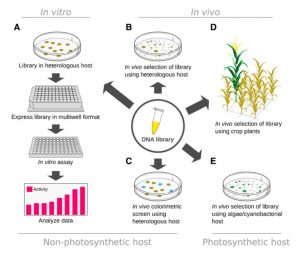 Half of the 2018 Nobel Prize in Chemistry was awarded to Frances Arnold “for the directed evolution of enzymes”. Essentially, this involves modifying an enzyme and screening its properties repeatedly to develop an enzyme with novel attributes. Engqvist and Rabe review this powerful method and its application to plant biology. First, they describe methods for engineering and evolving proteins. These include methods for diversifying sequence (such as error-prone PCR and chimeragenesis) and methods for screening the functions of these new proteins. Much of the remainder of the review discusses pros and cons of various organisms for in vivo functional screening. Ease of transformation, or lack of it, is a key determinant, but for many applications the protein’s activity can only be determined in a multicellular plant. The authors provide several examples of directed protein evolution in heterologous hosts and in plants. (Summary by Mary Williams) Plant Physiol. 10.1104/pp.18.01534
Half of the 2018 Nobel Prize in Chemistry was awarded to Frances Arnold “for the directed evolution of enzymes”. Essentially, this involves modifying an enzyme and screening its properties repeatedly to develop an enzyme with novel attributes. Engqvist and Rabe review this powerful method and its application to plant biology. First, they describe methods for engineering and evolving proteins. These include methods for diversifying sequence (such as error-prone PCR and chimeragenesis) and methods for screening the functions of these new proteins. Much of the remainder of the review discusses pros and cons of various organisms for in vivo functional screening. Ease of transformation, or lack of it, is a key determinant, but for many applications the protein’s activity can only be determined in a multicellular plant. The authors provide several examples of directed protein evolution in heterologous hosts and in plants. (Summary by Mary Williams) Plant Physiol. 10.1104/pp.18.01534




